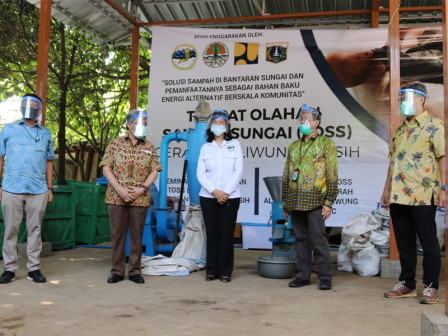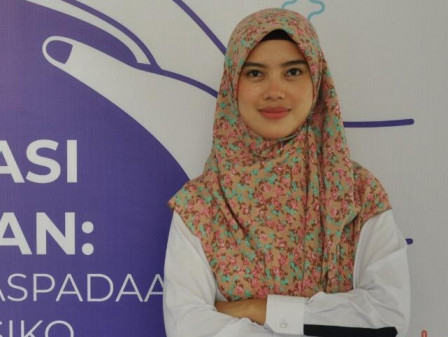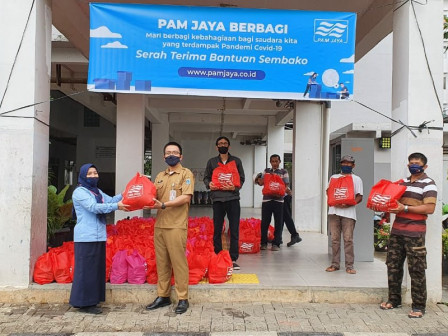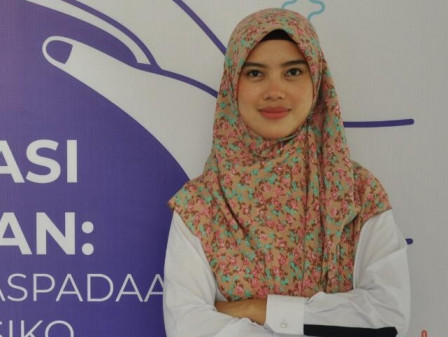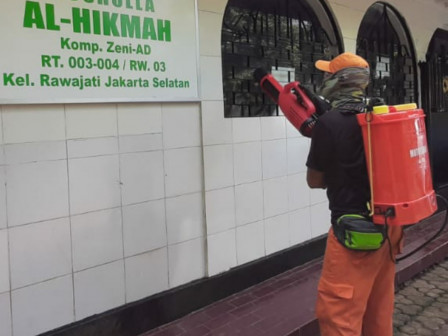PAM Jaya Collaborates to Develop a Temporary Trash Bin
Reported by Wuri Setyaningsih | Translated by Nugroho Adibrata
PAM Jaya together with Clean Ciliwung Movement (GCB) and companies collaborate to inaugurate the GCB's Temporary Trash Bin (TOSS GCB) on a limited basis at home together with the GCB, Saturday (6/27).
Our hope is people can have an alternative waste management that is easy, practical and has more benefit
This inauguration moment was participated by Pollution and Environmental Damage Control General Director, MR Karliansyah; GCB Chairperson, Peni Susanti; PAM Jaya President Director, Priyatno Bambang Hernowo; PT Indonesia Power President Director, Ahsin Sidqi and PT Indofood Sukses Makmur Tbk General Manager Corporate Communication, Stephanus Indrayana.
PAM Jaya to Have 100 Water Kiosks This Year
PAM Jaya President Director Priyatno Bambang Hernowo explained, his party was committed to support it through environmental care programs initiated by environmentalists such as the GCB.
"Our hope is people can have an alternative waste management that is easy, practical and has more benefit thus it will trigger them to throw garbage in its place," he expressed.
TOSS GCB is the work of Sonny Djatnika Sundadjaja's innovation made based on the concept of community-based waste management (household and biomass) or the community by using technology peuyeumisasi (biodrying). The concept itself was conceived by Supriadi Legino.
"The workings of the TOSS GCB begin by putting the garbage in a 2x1,25 x1.25 m3 bamboo box (equivalent to 1 ton of waste) without the hassle," he explained.
In the meantime, he added, the waste in the bamboo is then watered with a biocativator that causes the waste shrink by 50 percent and dry with a moisture level below 20 percent within seven days. After that, it is ready to be used as raw material for energy in the form of briquettes or pellets with caloric values equivalent to coal.
Then the briquette or vegetable coal pellet can be used as a substitute for coal consumed by industry and electricity generation.
"Further government support is needed in the form of facilities for briquettes can be traded for daily use," he explained.
GCB Chairperson Penu Susanti added that this program was designed to process river waste into electricity and was intended for communities along the Ciliwung River with the final product is synthetic gas which is able to become a fuel substitution for generator or diesel.
By so, the community received at least three benefits. First is bathing/washing/toilet centers (MCK) thus able to minimize the silting of wells due to the huge exploitation of ground water. Second is use it to wash machines, tools and vehicles. Third is watering plants and being able to be a source of water for eco-friendly vegetable farming in verticulture installations.
She added the aim of making TOSS GCB was to clean up waste and return to the GCB vision to make the Ciliwung River a source of clean water.
"Hence electricity as a TOSS GCB product is a bonus for the efforts of all stakeholders in providing solutions to river problems, especially in Ciliwung," she closed.

